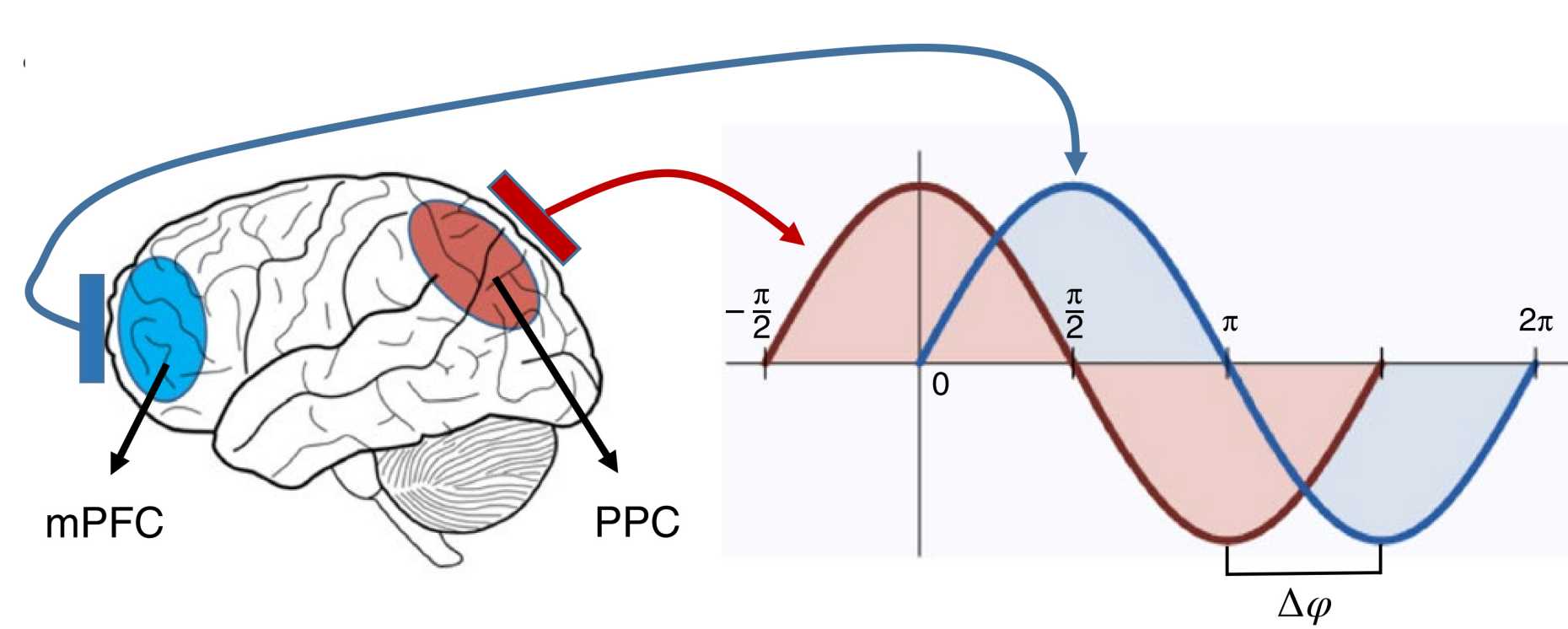The causal role of large-scale brain synchrony for cognitive processing

Sensory and association areas of the human brain are organized in a distributed manner, requiring an efficient communication mechanism to integrate responses across different cortical regions to guide behavior. How the human brain can achieve this relatively fast and efficient integration of information has been the topic of intensive research in the last two decades. A growing number of studies suggests phase synchronization as a fundamental neural mechanism in cognitive functions requiring large-scale integration of distributed neural activity, supporting both neural communication and plasticity.
Despite the large amount of empirical data, so far the majority of these studies have provided only correlative evidence for the impact of phase synchronization on cognitive performance, whereas its causal role still awaits empirical evidence. In our lab, we attempt to demonstrate that correlative evidence for the relevance of large-scale neural synchrony during emergence of cognitive processes is not a mere epiphenomenon, but causally related to human behavior.
Representative Publications
Polania R., Nitsche MA, Ruff C. (2018) Studying and modifying brain function with non-invasive brain stimulation. Nature Neuroscience
external page article
Bachinger M, Zerbi V, Moisa M., Polania R., Liu Q, Mantini D, Ruff C. (2017) Concurrent tACS-fMRI Reveals Causal Influence of Power Synchronized Neural Activity on Resting State fMRI Connectivity. Journal of Neuroscience
external page article
Moisa M., Polania R., Grueschow M., Ruff C. (2016) Neural substrates of motor performance enhancement by transcranial entrainment of gamma oscillations. Journal of Neuroscience
external page article
Polania R., Moisa M., Opitz A., Grueschow M., Ruff CC. (2015). The precision of value-based choices depends causally on fronto-parietal phase-coupling. Nature Communications
external page article - external page press
Polania R., Nitsche M.A., Korman C., Batsikadze G., Paulus W (2012). The Importance of Timing in Segregated Theta-Phase Coupling for Cognitive Performance. Current Biology
external page article